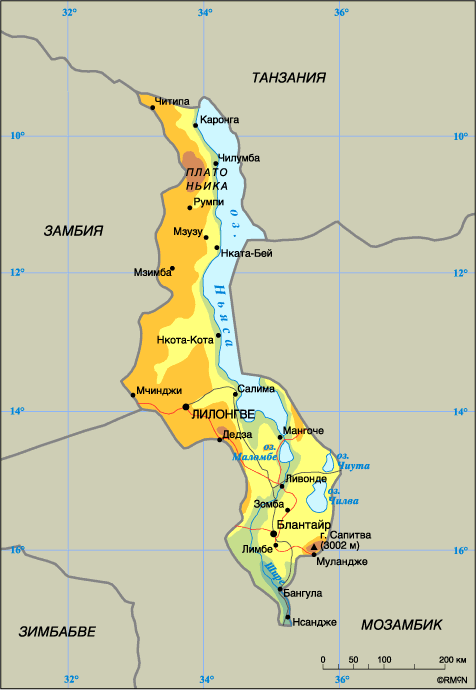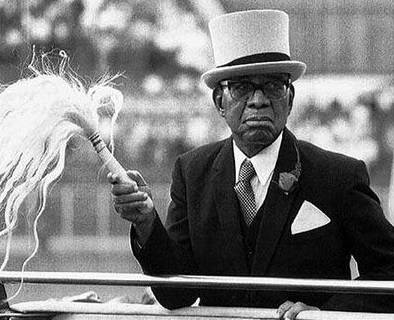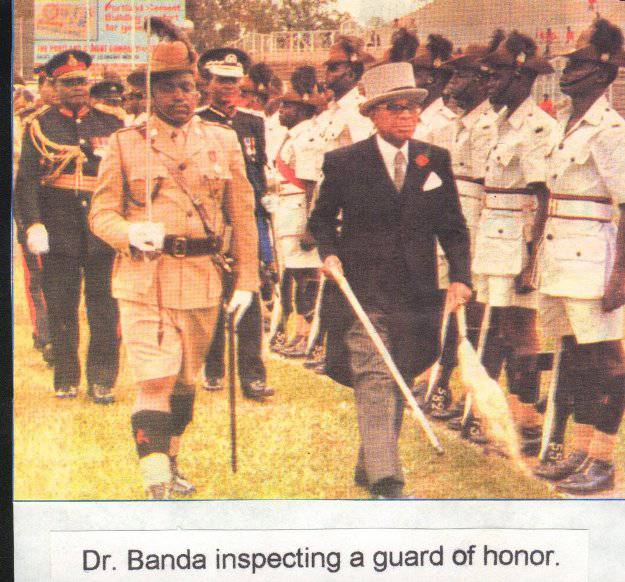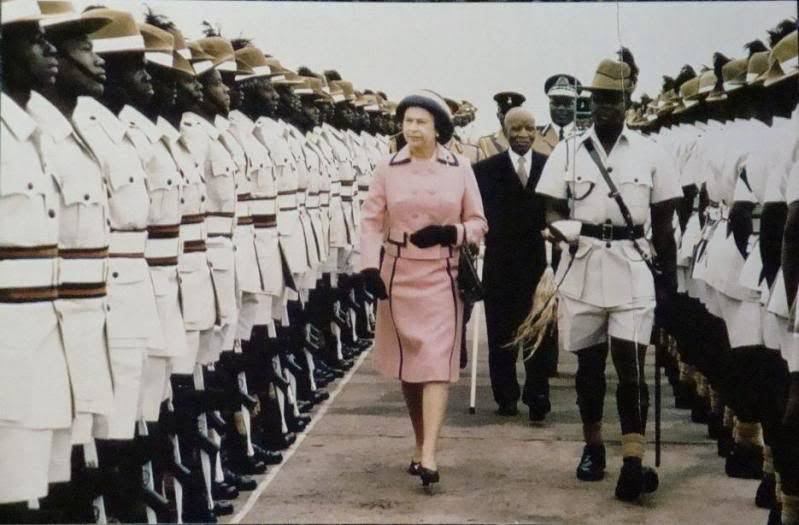The man in the top hat. "Special path" of President Gang
Malawi is one of the smallest and poorest countries in South Africa, lacking access to the sea, but with a beautiful nature and a very good climate by African standards. After the famous traveler David Livingston visited the territory of modern Malawi in 1859, the country fell into the sphere of colonial interests of the British Empire.

In 1891, the United Kingdom declared the territory of present-day Malawi to be its protectorate called "British Central Africa". In 1907, the protectorate received a new name - Nyasaland - from Lake Nyasa (in the local language Yao "Nyasa" - "lake"), the third in depth after the Baikal and Tanganyika freshwater reservoir in the world. In 1953, the British authorities, seeking to find a "third way" for the development of their possessions in Africa, different from the "old-regime" colonialism in Portuguese Angola and Mozambique, and from the socialist way, united the protectorates of Northern Rhodesia (now Zambia) and Nyasaland ( now Malawi) and self-governing Southern Rhodesia (now Zimbabwe) to the Federation of Rhodesia and Nyasaland. This quasi-state entity, which in fact continued to be under British control, existed from 1 in August 1953 to December 31 in 1963. Even 1 February 1963 Nyasaland became a self-governing territory within the Federation, and 6 July 1964, a little more than six months after the liquidation of the Federation, the independence of the new African state, Malawi, was proclaimed.
The President of Malawi 6 July 1964 was Hastings Kamuzu Banda (1898-1997), who had previously served as Prime Minister Nyasaland from December 31 1963. Of all the nyasaland politicians, Banda was by far the most prominent figure. Despite his age, and by the time the country declared independence, Hastings Kamuzu was well past sixty, he was able not only to keep power in his hands, but also to create a stable regime not subject to coups and revolutions - a rarity by African standards.
Little is known about the childhood of Hastings Kamuzu Gang. Until now, historians are even confused with the exact date of his birth. It is officially stated that Hastings Kamuzu Banda was born in March or April 1898 of the year, but 1896 year and even 1906 year also appears as the date of his birth. The birthplace of the gang was a village near the town of Kasungu in central Malawi. At birth, the boy was given the name "Kamuzu", which means "small root" - his mother took the tincture of the root from infertility, and the surname "Gang" means "little hut". In the spring of 1915, Mr. Kamuzu Banda, who by that time was baptized and received the Christian name Hastings, left home. He went to work - he worked in the coal mines in Rhodesia and South Africa.
It was around this time that Hastings met Bishop Vernon. The clergyman promised Hastings full support in his further studies - and the young man in 1922 went to the USA. There, Banda entered the African American College in Wilberforce, Ohio, from which he graduated from 1928 and entered Indiana University in Bloomington. For the African of the first half of the twentieth century, this was very much - the Banda immediately became one of the lucky few from Nyasaland who managed to get a higher education. In the US, Banda met with anthropologists and ethnographers who studied the people of Nyasaland. Cooperation with them played a role in the fate of the young man - he moved to the University of Chicago, where he received a bachelor's degree in philosophy and stories. Then, Banda decided that medical education in Nyasaland would be more profitable and promising, he entered the Meharry Medical College in Nashville, Tennessee, and then moved to the UK, where he graduated from Edinburgh University Medical School in 1941. Thus, the first half of his life Hastings Kamuzu was in school - he studied for more than forty years. After graduating from medical school, Banda lived for another twelve years in the UK, where he practiced medicine in North Shields and London.
Prior to 1953, Banda practiced medicine in North Shields (northern England) and London. His acquaintance with the members of the African liberation movement living in the UK also dates back to this time. Already in 1944, Banda took part in the creation of the African Congress of Nyasaland. At this time, he actively opposed the idea of creating a Federation of Rhodesia and Nyasaland. In 1953, Banda left the UK for Ghana, where he settled in the city of Kumasi and began working as a doctor, not forgetting political activities at the African Congress of Nyasaland.
 In 1958, Hastings, Kamuzu Banda returned to his homeland, where he, as one of the most well-educated and active Nyasaland politicians, was elected chairman of the African National Congress, Nyasaland. In this position, Kamuzu Banda took up active promotion of Nyasaland independence and calls for civil disobedience. From the governor, Robert Armitage, Banda demanded that Africans be provided with the majority of seats in the Legislative Council. Armitage refused this offer, after which supporters of the African Congress began to unrest. Federal troops were brought into Nyasaland, above all the famous Rhodesian regiment. 3 March, a state of emergency was introduced in Nyasaland. Hastings Kamuzu Banda and several other leaders of the national movement were arrested and imprisoned, and the African Congress was banned. In total, at least 1959 people were active - active participants in the protests. Only in 2000, Kamuzu Banda was released, after which he began to re-create the congress under the new name - the party "Congress of Malawi". When elections were held in 1960 in Nyasaland, they were won by the "Congress of Malawi". Banda himself received the post of Minister of Land, Natural Resources and Local Government, in fact becoming Prime Minister of Nyasaland. December 1961 The 31 of the Federation of Rhodesia and Nyasaland ceased to exist. After that, Hastings Kamuzu Banda took over as prime minister of the self-governing Nyasaland, and on July 1963 6 was proclaimed President of Malawi.
In 1958, Hastings, Kamuzu Banda returned to his homeland, where he, as one of the most well-educated and active Nyasaland politicians, was elected chairman of the African National Congress, Nyasaland. In this position, Kamuzu Banda took up active promotion of Nyasaland independence and calls for civil disobedience. From the governor, Robert Armitage, Banda demanded that Africans be provided with the majority of seats in the Legislative Council. Armitage refused this offer, after which supporters of the African Congress began to unrest. Federal troops were brought into Nyasaland, above all the famous Rhodesian regiment. 3 March, a state of emergency was introduced in Nyasaland. Hastings Kamuzu Banda and several other leaders of the national movement were arrested and imprisoned, and the African Congress was banned. In total, at least 1959 people were active - active participants in the protests. Only in 2000, Kamuzu Banda was released, after which he began to re-create the congress under the new name - the party "Congress of Malawi". When elections were held in 1960 in Nyasaland, they were won by the "Congress of Malawi". Banda himself received the post of Minister of Land, Natural Resources and Local Government, in fact becoming Prime Minister of Nyasaland. December 1961 The 31 of the Federation of Rhodesia and Nyasaland ceased to exist. After that, Hastings Kamuzu Banda took over as prime minister of the self-governing Nyasaland, and on July 1963 6 was proclaimed President of Malawi. From the first days of his time in power, Kamuzu Banda began to tighten the domestic policy and strengthen the vertical of power. One of his first decisions was to ban the activities of opposition political parties and impose censorship on Malawian print media and radio. The lists of prohibited literature were communist and socialist books and publications, and even erotic literature. A convinced conservative, Kamuzu Banda sought to build in Malawi an ideal Christian-conservative state, in which there would be no place for leftist ideologies and parties, nor "debauchery and vulgarity" of the modern world. Such a tight regime for Kamuzu Banda considered a panacea for the numerous problems faced by the young independent states of Tropical Africa. Indeed, we must pay tribute, in something President Banda turned out to be right - at least Malawi avoided regular military coups and wars that became the “calling card” of most African states.

However, the domestic policy of the Kamuzu Gang often took on absurd features. Thus, all adult citizens of Malawi were obliged to join the ranks of the Congress of Malawi Party (PKM). Periodically, the police conducted checks on party tickets, which citizens were required to present at any time of the day. As for youth, the “Pioneers of Malawi” paramilitary units were formed from it, which was a Malawi analogue of the Chinese Red Guards. "Pioneers of Malawi" had the right to wear weapon, to conduct operational investigative activities, the units recruited from them were engaged in ensuring the personal protection of the Hastings Kamuzu Banda.
Much has been written about tight dress codes and rules of conduct introduced in Malawi during the years of the President of the Gang. Thus, women were forbidden to wear a neckline, pants or skirts and dresses above the knee. By the way, even foreign nationals arriving in Malawi could not be missed by border control if they were wearing dresses or skirts above the knee. As for men, the most stringent control existed for the length of the hair. Hastings Kamuzu Banda, a man of old schooling and conservative views, was extremely negative towards hippies and youth subcultures, considering them a manifestation of the disintegration of society. Therefore, in Malawi, men were not allowed to wear long hair, and “Pioneers of Malawi” and the police had the right to stop and forcibly cut any long-haired one. At the airport, foreign guests with long hair also had to either have a haircut or abandon the idea of visiting Malawi.
At the same time, unlike many other African dictators, Hastings Kamuzu Banda sought to pursue a constructive economic policy aimed at improving the welfare of the country and its people. An absolute supporter of the capitalist path of development, Banda adhered to Walt Rostow’s theory of modernization and sought to modernize the country's agriculture and industry. In particular, during the years of the Gang's reign, the Malawi State Agricultural Development Corporation was established, which was to search for new markets for products produced in the country and, at the same time, organize import substitution. The main export products of Malawi agriculture, up to the present, are tea and tobacco, in the export of which Malawi ranks second in Africa - after Kenya. One of the most important tasks of the modernization of Malawi was the construction of new and modern highways that connected the cities of the country. Among the first, a road was built between the former capital Zomba and the city of Lilongwe, proclaimed a new capital of the republic in 1975 year.
The president paid much attention to the creation of a quality education system in Malawi. He even stated that he did not want his children to go abroad to study, as he himself had to do in his time. A college was founded in Kamuzu, which Banda called the Malawi counterpart of Eton. In this college, Malawian students were taught both topical economic and legal disciplines, as well as classical subjects, for example, Latin and Greek. However, spending huge amounts of money (almost the entire budget of education) on the development of an elite college, the government forgot about the real needs of the majority of the country's population, for whom even full school education remained inaccessible.

In foreign policy, Hastings Kamuzu Banda positioned himself as a staunch anti-communist and opponent of socialist regimes. He was probably the only African leader who openly supported the apartheid regime in South Africa and had strong ties with the South African leadership. During the civil war in Mozambique, Hastings Kamuzu Banda supported the Portuguese colonial administration, which also attracted harsh criticism from other African leaders. He supported the American aggression in Vietnam. Any opposition manifestations of the Banda ruthlessly suppressed, resorting to political repression and extrajudicial killings of the opposition. According to various sources, during the reign of President Kamuzu Banda, the political opponents of the Malawi regime were destroyed from 6000 to 20000.
The end of the Cold War at the end of the 1980-s contributed to the weakening of the Gang regime. Changes in world politics have diverted the attention of patrons — the United States and Great Britain — from Malawi. The American and British leadership no longer needed the authoritarian Gang regime as an alternative to pro-Soviet sentiment in South Africa. In turn, prices for tea and tobacco declined, which also contributed to the deterioration of the economic situation in Malawi. It became more and more difficult for the ninety-year-old president to keep power in his hands, all the more so with the state of health of the aged leader of the nation. In 1992, mass protests began in Malawi. Critics of the Gang were also made by the priests who had previously been his support. Under pressure from Western countries 14 June 1993, the president was forced to hold a referendum in Malawi, in which 64% of the country's citizens were in favor of abandoning the one-party system and moving to a multi-party democracy. Nevertheless, Hastings Kamuzu Banda remained in power in the country for another year. Only in 1994, the first multi-party elections in the entire history of Malawi independence were held. They won the leader of the United Democratic Front Elson Bakili Muluzi, who previously worked in the government of the Gang. He is 24 May 1994 of the year and took over as President of Malawi, leading the country for the next ten years - until May 2004 of the year.
Hastings Kamuzu Banda left the post of head of state, entering the history of the twentieth century as one of the oldest leaders in the world. He passed away three years later - 25 on November 1997 of the year in Johannesburg. At the time of his death, Hastings Banda was 99 years old (although, given the controversy over his date of birth, he could have been more than 100 years old). The first president of Malawi, with great honors, was buried at home. In 2005, the gang mausoleum was built, and in the cities of the country there are still monuments to this peculiar leader.
Information